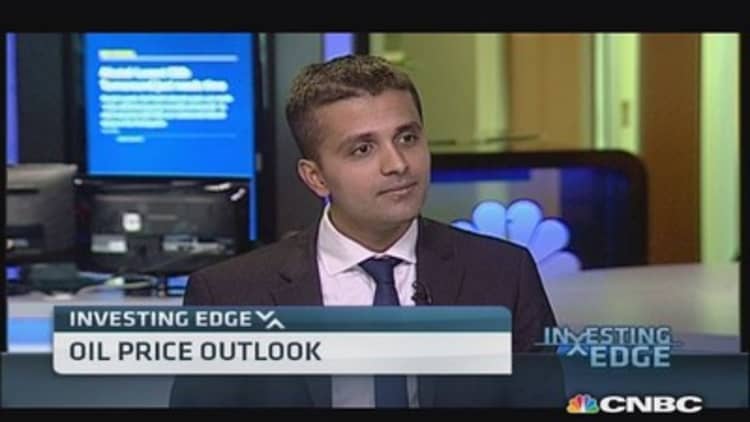The possible lifting of sanctions against Iran as early as next year - setting the stage for the return of the country's oil exports - may spark a "price war" within OPEC as rival producers try to compete with heavily discounted crude offered by Tehran.
International sanctions aimed at curbing Iran's nuclear program have more than halved the country's oil exports to about 1 million barrels a day since the beginning of 2012. But a recent thaw in relations with the West under a more moderate leadership led by President Hassan Rouhani who took office in August has raised expectations that the embargo may be rolled back.
(Read more: Oil markets will be watching US-Iran body language at UN)
Though this may free up oil exports only months later, some oil strategists warn it could add extra volume to an already saturated market, depressing prices and unsettling the Organization of Petroleum Exporting Countries (OPEC), which pump more than a third of the world's oil.
"The market is currently 'missing' approximately 1 million barrels per day of Iranian oil, which is not actually needed in view of the ample supply in the oil market," Commerzbank strategist Barbara Lambrecht wrote in a report on Monday.

"If sanctions are relaxed, Iran will have to make substantial price concessions, which could lead to a price war among oil producers in the battle for market share," she said. Commerzbank this week cut its Brent crude forecast for 2014 to $106 a barrel from $115 previously.
Iran also has an estimated 26 million barrels of crude in floating storage, according to Societe Generale, in territorial waters which have been effectively quarantined due to Western sanctions.
(Read more: Libya may deepen Brent's premium over US oil)
Tehran has already broached the possibility of discounted crude if exports are allowed to resume. "If the international circumstances become normal, in order to gain back our traditional markets, if necessary, one of Iran's leverages in this regard is price," oil markets information service Platts reported on October 22, citing Mohsen Ghamsari, National Iranian Oil Company's international affairs director.
'Long way to go'
Benchmark Brent crude prices tumbled during September by about 7 percent from a six-month high above $117 after tensions eased between the U.S. and Iran, culminating in the first phone call between the two countries' presidents since 1979 and a pledge to work swiftly toward an agreement on Iran's nuclear program.
Despite the optimism reflected in the September price drop, many believe the markets may be premature in anticipating the dismantling of sanctions and the subsequent resumption of Iran's exports.

"The return of Iranian crude remains way off, and even though the relationship between Iran and the West is improving there is a long way to go before we see Iranian barrels back on the market," said David Nevin, an energy broker at Xconnect Trading Ltd. in London.
(Read more: Why crude oil deserves to drop to $90: Pro)
Such pessimism may be rooted in developments in Washington D.C. where some politicians remain skeptical of Tehran's diplomatic overtures and are pressing for sanctions to be tightened.
Robert Menendez, the chairman of the Senate Foreign Relations Committee, told a meeting of the American Israel Public Affairs Committee (AIPAC) in New York last week that a package of sanctions ready to move in his chamber has a goal of cutting Iran's current oil exports to no more than 500,000 barrels per day, Reuters reported on October 29.
Assuming a best-case scenario and sanctions are lifted, it would take Iran at least 3 to 6 months to lift domestic production to levels enabling it to recover the 1 million barrels a day in lost exports, according to estimates from Michael Wittner, Global Head of Oil research at Societe Generale. It could take longer if Iran's oil industry has not been performing routine maintenance on the shut-in wells and fields, he said.
Ultimately, Saudi Arabia - the world's largest oil exporter and OPEC swing producer - will likely accommodate the return of Iranian crude exports by pumping less of its own oil.
(Read more: Battered US crude flirts with worst month of 2013)
"The bottom line is that we believe the Saudis will offset an Iran recovery, whenever it happens, if it happens, by cutting to offset," Wittner told CNBC. "It will not be an issue for them (Saudi Arabia) to cut from 10 million barrels a day to 9 million. That's where they were before the 2011 Libyan civil war and that's where they were just a few months ago."
— By CNBC's Sri Jegarajah. Follow him on Twitter: @cnbcSri


